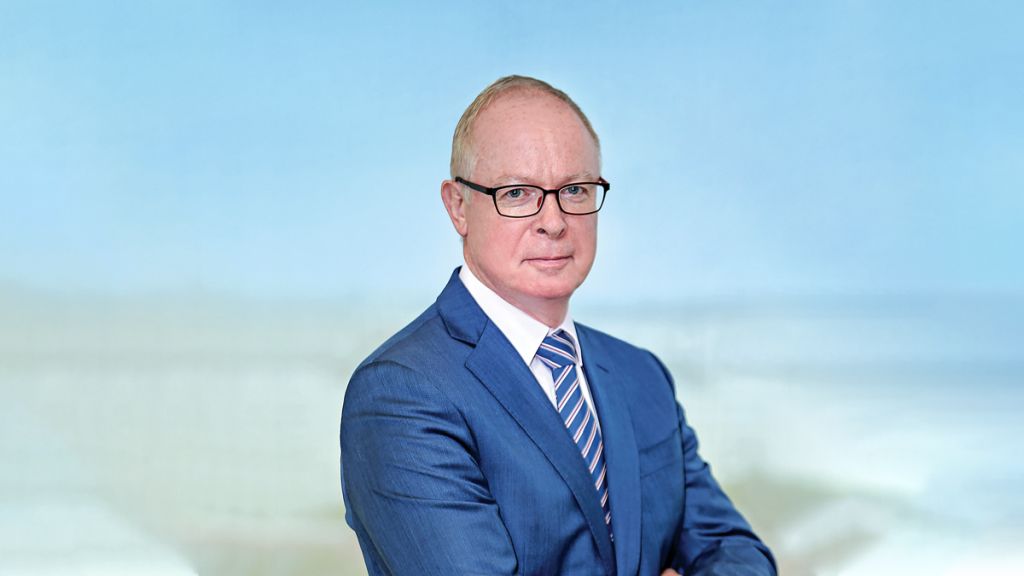Q: FIRST BANK recently announced the takeover of Bank Leumi and other future possible acquisitions, in a context where the banking sector expects significant profit reductions. What’s next?
Dominic Bruynseels: This acquisition is part of the bank’s strategy to increase and consolidate its presence in Romania, aiming to become a strong banking player on the local market. This is the second acquisition that the American investment fund JC Flowers & Co. has made on the Romanian market in less than a year proving its interest and commitment to this valuable market. As a value-based acquirer we remain open to similar growth opportunities. Meanwhile we will continue to do business “The American Way”, focusing on growth through quality service to customers, digitalization and efficiency.
Q: Banks’ investments are leaning heavily toward technology upgrades – especially those that make self-service digital banking easier for customers. FIRST BANK will invest 7.5 million euro in technology. Which is the coverage of this transformation?
Dominic Bruynseels: We intend to alter for the better all the internal processes and systems that rely on technology in order to offer better services to our customers. We aim for faster time response through automated data analysis of the customers, new online banking solutions that seriously reduce the time and effort of the clients in getting quality banking services and products. Despite this natural, more increased pace in updating our technologies we do not intend to go fully digital as we understand our clients’ need for human interaction especially when making life changing financial decision such as getting a mortgage, for example. Actually, FIRST BANK already offers unique banking solutions to its clients and remote payment of taxes, projects that have brought the bank a series of distinctions and recognitions. It is the case of LiveShop platform and the Ghiseul.ro integration in the bank’s online application - the latter being accomplished in collaboration with the Ministry of Communications and Information Society (MCSI).
Our aim is to become a “tech bank with a human touch”.
Q: The pace of economic integration around the world decreased. “Slowbalisation”, a term used since 2015, describes the reaction against globalization. How severe do you think it will become? When did the slowdown begin?
Dominic Bruynseels: While slowbalisation seems to have appeared almost a decade ago, it wasn’t until recently that its new imposed rules have become evident. From geopolitical reasons to protectionism, nationalism and rewritten trade rules, it looks like a new world emerges both in terms of business and social climate. Cross-border investment, trade, bank loans and supply chains have all been shrinking or stagnating relative to world GDP. Chinese investment into Europe and America fell by 73% in 2018. The global value of cross-border investment by multinational companies sank by about 20% in 2018.
Referring to FIRST BANK and Romania for example, we are the product of globalization of capital which means we are both global and local thus bringing the best of both to benefit the customers and our investors.
I am skeptical in believing that slowbalisation will manage to repair the problems globalization created, but rather worsen some of them, disparities between the rich and the poorer societies included. At the same time, I expect its effects to be limited and not severe given the fact that continental-sized markets are large enough to prosper.
Q: Companies can adapt to globalization, shifting from physical goods to intangible ones. Now the big opportunity is services. What opportunities will bankers see in slowbalisation?
Dominic Bruynseels: This new trend compels companies to shift from physical goods to services. To what end, it remains to be seen. The only opportunity I envision is that companies will tend to go more local/regional in solving their supply needs, banking ones included, given the trade restrictions that continue to emerge. This has the medium term potential to create local welfare and keep the money within local borders. I do not think that the outcomes of this recent paradigm are 100% predictable.
Q: You returned in Romania after few years abroad. What you wanted to find changed, both in the business but also personal?
Dominic Bruynseels: It’s good to go away and come back, that way you can see changes more clearly. Having this overview I believe there has been progress but there have also been negative changes. From this perspective, we should emphasize the positive and work hard on the negative. I would like to see more trust, more cohesion in all layers. In a European context the country does well economically and needs more balance in its development. I am very fond of Romania. My better half is born in Cluj and she is in love with this country and its wonderful people. Our children speak Romanian, and I think that this country, which has hosted me in the past with much warmth and grace, has much to offer and much to say.


































